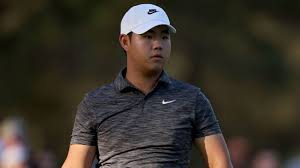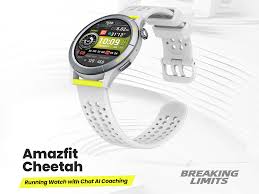Living with a Loved One with Dementia or Alzheimer's Disease - Episode 242 with Chick2Chick

With a growing elderly population, the spotlight is on the aging brain. November is Alzheimer’s Awareness Month. Chick2Chick “chirps” with the Alzheimer’s Association-Greater Pennsylvania Chapter about this debilitating disease and “Living with a Loved One with Dementia or Alzheimer’s Disease.”
#podcast #letschirp #womensvoices #realtalk #dementia #president #alzheimers #aging #brain
TRANSCRIPT: Watching loved one slowly lose their memory. Become highly agitated, even combative. It’s tough to watch and really, it’s tough to handle. It is. And the Alzheimer’s Association has some great resources to help you navigate that challenging time. And this is check to check.
You know, it’s no secret we’re getting older, our parents are getting older. And I think everyone is really, really concerned about what’s going on with the aging brain and the deterioration of cognitive skills.
And my mother is 87 years old. And knock on wood, I don’t know if that’s a good thing or a bad thing, but this is functioning just fine. And and I but I do worry about that because I went through this with a very good friend of mine, her mom, she was spunky, she spry, she was spirited.
And then just watching her deteriorate, she would lose her memory. And then she would get so angry and so agitated. And I think really, she was probably frustrated that it was coming across it in this aggravation, this agitation. It was tough for me to watch. I just can’t even imagine, how that felt for my friend. Right.
And while you had that experience, you know, my grandfather, I mean, he just he really went sideways. And it was so terrible to watch my stepfather. So here’s just you and me with these examples. This is why we have a really important guest today to to talk with us about it. Clay Jacobs, is the executive director for the Alzheimer’s Association, Greater Pennsylvania chapter.
Clay, we’re so happy that you are here today to shed some light on things. But first, let’s kick it off with talking to us about what the Alzheimer’s Association does. Absolutely. And it is a privilege to be here with you there. And I think the topic you bring up is so important for so many Americans. And I have the privilege of working for the Alzheimer’s Association because we are the leading voluntary health association around also member states and all of their dementias.
And so we think of it, there are certainly the broad base, but our goal is to is our vision is a world of all awesome nurses and all of their dementia. But that means that we have to work towards research, work towards activating individuals and communities, provide resources and support. So we know that this is a disease that impacts people.
So individually and community, and across the US, the association wants to be there to be able to support them through that journey. So in my case, I have an elderly mom as I had mentioned. She seems to have this all up here. I mean, maybe too much. She remembers everything. I’m going to be a good daughter. Yes, she does, but what should I be paying attention to?
What should I be looking for? If signs. Onset of dementia or Alzheimer’s with her?
When we see personality or judgment changes, when we see difficulty performing familiar cats. Right? Somebody who used to bake and knew the recipes by heart, but it’s really struggling to put those things together when we see issues with understanding time and place.
And so there’s a whole slew of things on warning signs that should prompt maybe a conversation with family or a conversation with the doctor. But if they’re all things that continue to get worse and are different than the normal and and isn’t hereditary, I’ve heard people say, oh, you know, well, the grandmother had it. I’m worried I’ll have it.
And if that’s the case, is there anything that can be done, to sort of stave it off, you know, keep it at bay for a while. It is. And, and so one of the things we’ve learned is that also disease in particular is not necessarily directly linked to genetics. There’s certainly risk factors, but there are a whole slew of other risk factors.
And in fact, just last month, The Lancet Commission, which looks at research across the world, found that, you know, up to 45% of cases of dementia could be potentially prevented. And the things they looked at are really in a couple of big categories. We talk about social activities, so engaging and connecting with others in the way that cuts us mental activity, things like diet and exercise.
So a lot of those things that we think are good for heart and brain, really are true. And as research looks, it’s making sure it’s true for everyone. So there’s quite a bit of research going on, but we know generally right now there are things you can do to to give yourself the best chance and to try and keep your brain as healthy as possible.
Well, you said that are worried. What are the risks factors. Yeah. And there are there are quite a few. As you talk about unmanaged high blood pressure or diabetes. We look at history of head injury. We look at a whole slew of things there that are the opposite. Right. So heart health is an important one. And so as we look at some of those things, they are ones we can manage.
Now the challenge and some of this is that the research has been in smaller communities or smaller groups. So it may be effective in a certain kind of population, may not be true for everybody, but we’re learning so much more. Family is a risk factor in there certainly certain genetic things that puts you at risk. So we see them through genetic testing and others, but they don’t guarantee you’ll get the disease.
And so the biggest risk factors we know of right now what are things like high blood pressure, obesity, managing diabetes, all of those other health issues. And really part of what we think comes from that is just they’re all things about keeping our brain as healthy as possible. So there’s a chance to fight against whatever disease, whether it’s also disease or another form of dementia.
what resources do you provide to help us navigate that difficult time as well? Yeah, I think that’s so important. And often, you know, when there were treatments available for the first time and we’re talking about things like biomarkers to diagnose the disease earlier. But families and families of choice who are surrounding those living with the disease are such an important part of this.
And so there are a few things when you look at the Alzheimer’s Association, and we were founded by caregivers. And so things like our 24 over seven helpline, support groups, education programs, care planning sessions, all of which are available, in person, online or via phone. When you look at some of the other supportive services, so as I mentioned, care planning or care navigation, connecting with others early in the stages, all of those things are services we provide.
But then also we work with places like health systems. So for example, across the country right now, something called the guide model is in place for the first time ever. And Medicare and Medicaid are looking at what is it like if we provide dementia care navigation. So if somebody comes in with a concern, they don’t leave with an 800 number, but they get access to social workers and nurses and a plan for the future, access to 24/7 support, medication management, all of those things.
And so it’s not only how do we provide support today, but we’re finally seeing the support we see for other tragic diseases catch up in the space. And so that folks don’t have to say, I wish I knew about the Alzheimer’s Association when, but really they get the resources right when they need them. And support is so important when you’re dealing really with any type of a disease or illness.
This might sound like a crazy question. You know, you talked about some of the other risk factors before, and Carrie and I are really, really, conscientious about suit. And what we eat. And there’s been this whole movement, to go, you know, clean eating and using food as medicine. Is there any link to the food we eat sparking dementia or Alzheimer’s?
Yes. But again, goes to risk. And so I think one of the really interesting things we see is a lot of those studies and leaf search looked at things like the mind diet or the Dash diet, which certainly showed that benefit. The piece that we often didn’t see in that early research is how do you replicate in different markets?
Right. So the Mediterranean diet is really important, but access to some of the things there isn’t necessarily the case everywhere across the world. And so in fact, right now in the US there’s something called the US pointer study. And it has sites in North Carolina and California and Chicago and other places that say, okay, based on your diets and other pieces, what are the foods and other things you could be integrating that we know actually can in real, in real world situations, impact your risk and keep your brain and your heart healthy.
And so I think that’s the exciting thing is, right. One of the studies that did it was the Finnish geriatrics study, and it was all folks from Finland, but their diets were very similar. You start looking at someplace like the US and what one of those diet pieces that really make a difference. Those are the results we’re finding out now.
And pretty consistently we’re seeing that there is an impact. Again, it’s about risk, but it’s certainly something if we can manage our risk, any one of us would do so to to be able to avoid this spread of disease. Yeah. You know, the other thing the two of us are really big on and that’s exercise. And one of the things that I read actually, recently, is the concept of walking and talking.
Which is not mastered. It’s not just for fun. I have mastered that. And I think, you know, there’s some people who who think, how can I possibly have anything to do with you know, your brain health. But if you do have someone who does have the capacity to get out and move, and why is it important to have both of those functionalities at the same time for the for the brain, you know, to be healthier and firing quicker?
Well, and we talked earlier, right. Social activity and physical activity and that’s a marriage of those both. Right. So it’s one of those things that increases blood flow to our brain increases our general health, forms new synaptic connections. And so it says, you know, we hear of terms like be, pieces around learning things as you get older, right.
It’s harder to learn a language, but it sticks with us. Right? Those conversations are synaptic connections is really this idea of neuroplasticity that our brain grows, it gets stronger, it builds those connections. And so the more we have, the greater capacity you have. Even if also music steps in, you have more synaptic connections. And so that idea of pairing social activity and physical activity, doing those things in because it’s it’s not doing a crossword every day.
Because. Right. Just like if you think of the drive you take home. So you barely have to think about it after you’ve done it enough times. And so those aren’t new synaptic connections, but doing these things and connecting with other people, certainly something that helps drive them and keeps our brain healthier. Clay. This question is twofold. What tips do you have for the caregiver, who is dealing with somebody who is losing their memory or becoming highly combative or agitated?
What tips do you have for them to deal with somebody who’s going through that? And then on the other side, what tips do you have for the caregiver? Because this is tough to handle. Day in and day out. And I’m a big advocate that like, I think that caregiver needs to take a break sometimes and not feel bad about it.
Yeah. So can you answer both of those questions? Yeah. And it’s such an important perspective. And I think both come down to people. Right. And so when we talk about how do we interact, how do we improve interactions, all of those types of things. It starts early. It’s it’s knowing the person, it’s person centered care. So what do they like to be called.
What are the things they enjoy? What are the things that help them connect? How do we reminisce about positive times? How do we know the things that may trigger, behavioral changes or other components? And so it’s really helping build that plan.
because in this disease, we don’t we don’t see the brain changing, we see the person change. But it it’s changing. And so that means the thing that works today likely won’t work six months from now when nine months from now.
And so that idea of being intentional about it. But that goes to the caregiver support. Knowing where you can turn for resources, knowing when you can take a pause, knowing just that you’re not alone. So often we see spouses and partners who see these changes and their friends or family show up less. They’re less comfortable going out. And so it becomes this incredibly isolating disease for a disease that impacts 6 million Americans.
And so first, on that planning and knowing the resources, knowing what those things are doing that’ll progress within the same. On taking that pause and knowing the resource for caregivers. I think both are equally important and knowing when to call them right. When you have access to that’s the that’s the one thing is there are supports out there, but too often we do the best we can.
And that is without knowing all the things that we possibly, potentially can. Yeah. You know, if people just reach out right away, you know, they’re going to be better off both for themselves and and for their, their loved ones. So where can people find more information about the Alzheimer’s Association. Yeah. So the Alzheimer’s Association, we have a 24 seven helpline available in 200 languages and dialects.
It’s master’s level clinicians. It’s available at 800 272 3900 no matter where you are. And then you can also visit places like ALS and Ford. We’re in particular when we talk about caregiving, ALS August Care has access to all of the resources, either virtually right in your backyard or some you know, it’s there over the computer, right in your in your lap.
So those two places, I think are the great place to start, in addition to your local resources and physician mothers. Awesome. Clay, thank you so much for coming on the podcast. You really provided so much great information. Yeah. So we appreciate that. Thank you. Thank you. Absolute pleasure. I think he said something so insightful there towards the end when he said, you know, the person isn’t changing, the brain is changing.
And I think it’s hard to remember that because this is like one of those invisible illnesses. You can’t see that the brain is deteriorating and you forget. And it’s hard sometimes to deal with these folks. So we got to remember that. Absolutely. Listen, we appreciate all of you tuning in today and we hope that you enjoyed this podcast.
Do us a favor, head over to our YouTube channel. Like and subscribe to we’re back to that. Another topic.



 Malaysia
Malaysia Argentina
Argentina  Australia
Australia  Austria
Austria  Brazil
Brazil  Canada
Canada  Germany
Germany  Ireland
Ireland  Italy
Italy  Mexico
Mexico  New Zealand
New Zealand  Poland
Poland  South Africa
South Africa  United Kingdom
United Kingdom  United States
United States 



















